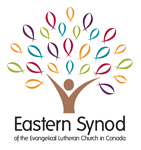Mandate
The Circle for Reconciliation and Justice was established at Synod Assembly in June 2018, extending the mission of the Biennium Reconciliation Task Force begun in 2014. Its mandate is to advise and assist ministry areas and congregations who have taken up the challenge of learning about our First Nations, Métis and Inuit neighbours and our collective history, and of walking with them in their ongoing efforts to undo the devastating effects of colonization.
Resources
Two Row On The Grand
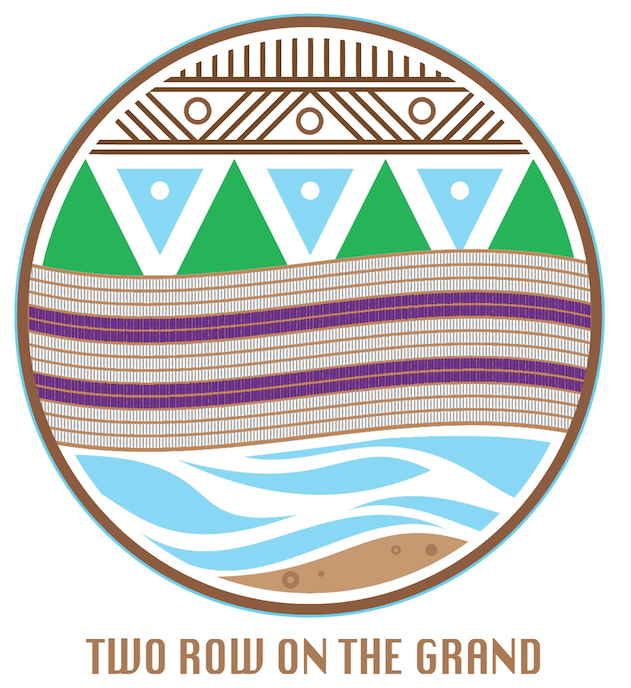
The Circle of Reconciliation and Justice of the Eastern Synod needs your help to get the word out to young adults between 18 and 30 who would be willing to take part in a canoe adventure on the Grand River this summer to learn and embody reconciliation in action. We are gathering a team of Indigenous and non-Indigenous participants to learn together, create long-lasting friendships and paddle the Grand River with a larger support team. Costs for this event are covered by the Eastern Synod. Please help us communicate this information to young people who may be interested in this effort at reconciliation. Deadline for applications is April 30, 2025.
Yellowhead Institute Landback Study
7 Sundays for Seven Sacred Teachings
The Circle for Reconciliation and Justice invites congregations to observe 7 Sundays, from May 19 to June 30 as a time in the church year to walk with our Indigenous brother and sisters.
We encourage you to learn about and reflect upon the Seven Sacred Teachings of the Anishinaabe, also known as the Seven Grandmothers or the Seven Grandfathers. A series of resources are now available to accompany you as you lean into these teachings as we celebrate National Indigenous History Month in June.
Indigenous Canada Study
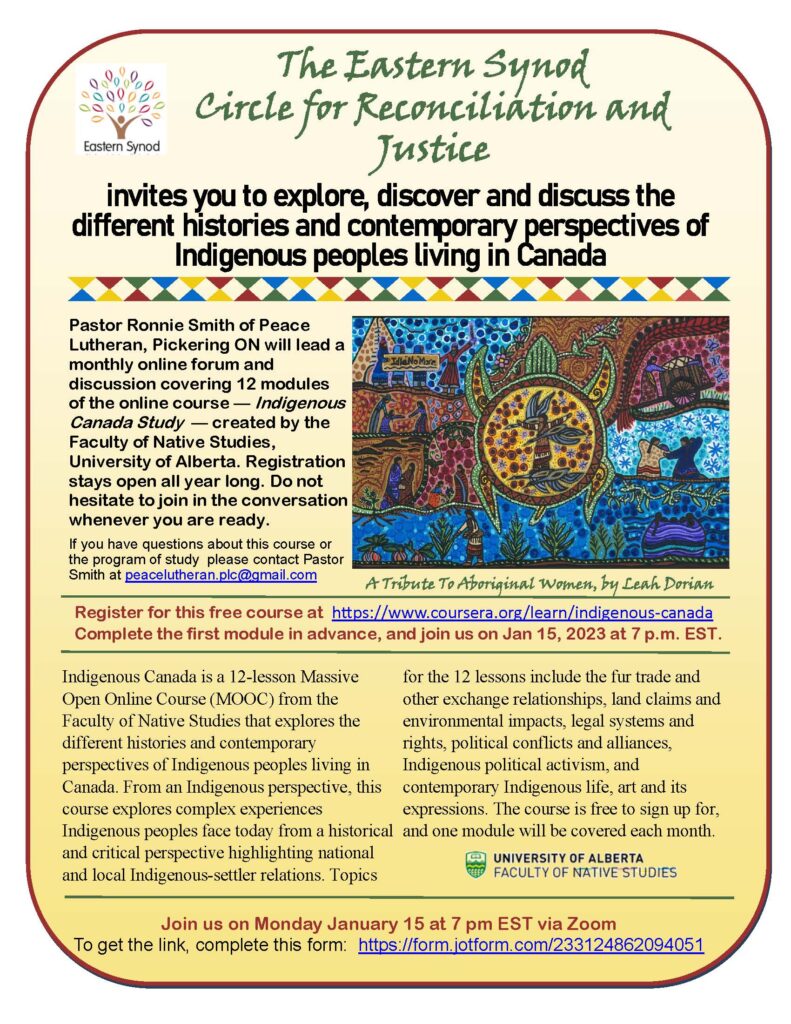
Pow-Wow Calendar
In your own journey of truth and reconciliation, you may wish to consider attending a Pow-Wow this summer. Pow-Wows are cultural gatherings, and an important part of Indigenous identity and tradition for many First Nations communities (northernontario.travel/indigenous/pow-wows-ontario-complete-list). There can be dancing and singing in regalia, as well as food and crafts. Please engage in your own learning around the customs, expectations and the uniqueness of each Pow Wow.
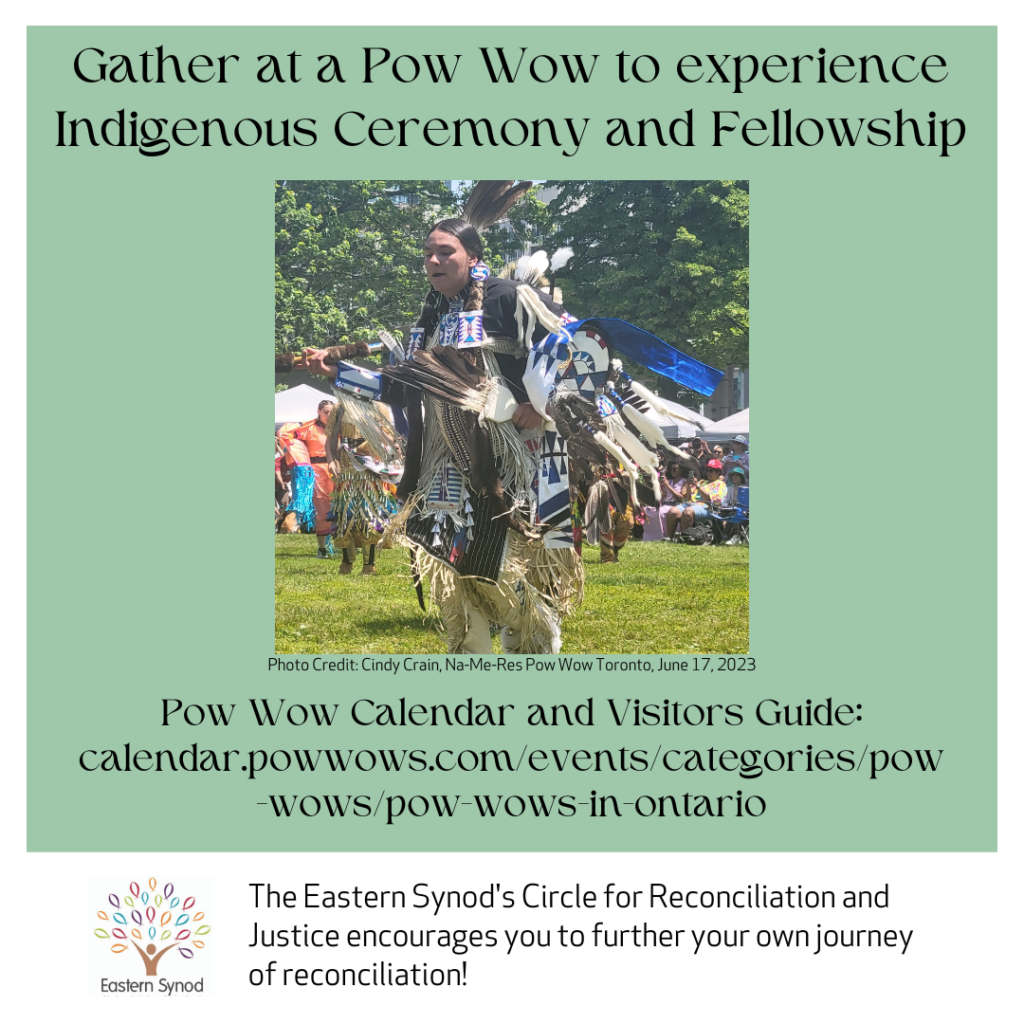
Earth Day Resources
God’s grace and peace to you!
The Circle for Reconciliation and Justice is pleased to share with you the following resources for Earth Day 2023. We are called to care for creation each and every day, so while you may want to use these resources on or around Earth Day (April 22nd), they can also be used throughout the year as we continue our work of stewardship for the earth, allyship and reconciliation.
You will find the following resources posted on the Eastern Synod website at the link provided below:
- Worship resources (including a children’s message for use in worship)
- A booklist geared to children
- Links to further learning and advocacy opportunities.
Additionally, please see below, some ideas of how you can be an ally of Indigenous-led conservation efforts.
How to Be an Ally of Indigenous-led Conservation.
The land guardians are the “moccasins and mukluks” on the ground to help their own Indigenous Nations to care for the land and waterways in their communities. Using both Indigenous and Western science, and wisdom from their elders, they learn about their relationship with animals and changes to the land.
Climate change, disappearing wildlife and an increasing demand for resources, along with the legacy of colonialism in Canada, all combine to threaten Indigenous homelands and way of life.
It is not up to Indigenous nations to do this work alone. They need the help and support and accompaniment of allies. In this lead-up to Earth Day, please consider how you can be an ally in Indigenous conservation of the land, water and animals.
For more information, please visit this link.
To print off a PDF on how to be an ally of Indigenous-led conservation, please follow this link. You can find more resources posted on the Eastern Synod website.
God bless you as you continue your journey of allyship and caring for creation.
~ The Eastern Synod Circle for Reconciliation and Justice
Orange Shirt Day 2022
Dear Friends,
Phyllis Jack Webstad was six years old when she left her community of Stswecem’c Xgat’tem First Nation to attend St. Joseph Residential School. Like most six year olds, she was excited to attend school for the first time. Her grandmother bought her a new, bright orange shirt for her to wear on her first day. When she arrived at school, far from home, her new orange shirt was taken away from her and never returned. This marked the start of Phyllis’s separation from her community, culture, family and friends; a separation mandated by the federal government and supported by the church.
On September 30th, we wear orange to remember that Every Child Matters and as people of faith, we need to listen to stories like Phyllis’s and learn from the wisdom, reflection, trauma, as well as the strength and resiliency of those who were taken from their families and communities and forced to attend residential schools, some of whom never returned home again. As Christians, it is also our responsibility to make reparations for the ways in which we continue to uphold colonialism and benefit from the systemic racism in our institutions and societal structures. September 30th is a federal statutory holiday – the National Day for Truth and Reconciliation, where people are encouraged to engage in learning, as well as listening and reflecting on the ongoing impact of the residential school system.
As September 30th approaches, here are some opportunities to consider:
- mark Orange Shirt Day in worship in your congregation on Sunday, September 25th by wearing orange and encouraging others to wear orange as well. Rebekah Ludolph has put together some worship resources based on the Season of Creation. (see attached). We are grateful to Rebekah for sharing this resource with the Synod.
- The United Church of Canada has also shared some worship resources.
- The National Centre for Truth and Reconciliation has an entire weeklong series of online events being offered for youth and adults alike. These events run from September 26-30th
- I Lost My Talk – Robyn Michaud, M.Ed (Anishinaabe Kwe Lecturer and Ed.D student) shares this well-known poem by Rita Joe and accompanying ideas and activities for children.
- to purchase a copy of the book, Phyllis’s Orange Shirt, click here.
- to purchase a copy of Phyllis Webstad’s new book, With Our Orange Hearts, click here.
- to purchase an orange shirt from an approved retailer, click here
- Medicine Wheel Education offers authentic Indigenous educational tools and resources.
Events
- Starting September 22 – educational programming at the Woodland Cultural Centre.
- September 14-30 – National Day for Truth and Reconciliation, 2022 at the University of Waterloo Office of Indigenous Relations.
- September 25-30 – Week of reflective and learning opportunities through the United Church of Canada, including worship ideas and online events.
- September 26-30 – Beyond the Orange Shirt Story – Niagara Falls, a series of events in the Niagara area.
- September 30 – Honouring Our Children Pow Wow, Mohawk Village Memorial Park. 184 Mohawk Street, Brantford, at 12 pm. This event is to commemorate an honour Residential School Survivors. Please wear orange.
- September 30 – Every Child Matters Walk, Kitchener, Healing of the 7 Generations. 10 am. Meet at 300 Frederick St and walk to Victoria Park Clock Tower.
- September 30 – 2nd Annual Truth and Reconciliation Day gathering, 10 am – 12 pm, Pijinuiskaq Park (King St., Bridgewater, NS).
- September 30 – Truth and Reconciliation Day, 1 pm; Hank Snow Museum Grounds, 148 Bristol Ave, Liverpool NS (see poster).
- October 1 – Treaty Day Mawio’mi, 12 pm; Hank Snow Museum 148 Bristol Ave, Liverpool, NS (see poster).
May God’s wisdom and understanding surround us as we continue to learn to walk in the ways of reconciliation, reparation and peace.
Abundant fall blessings to you,
The Eastern Synod Circle for Reconciliation and Justice
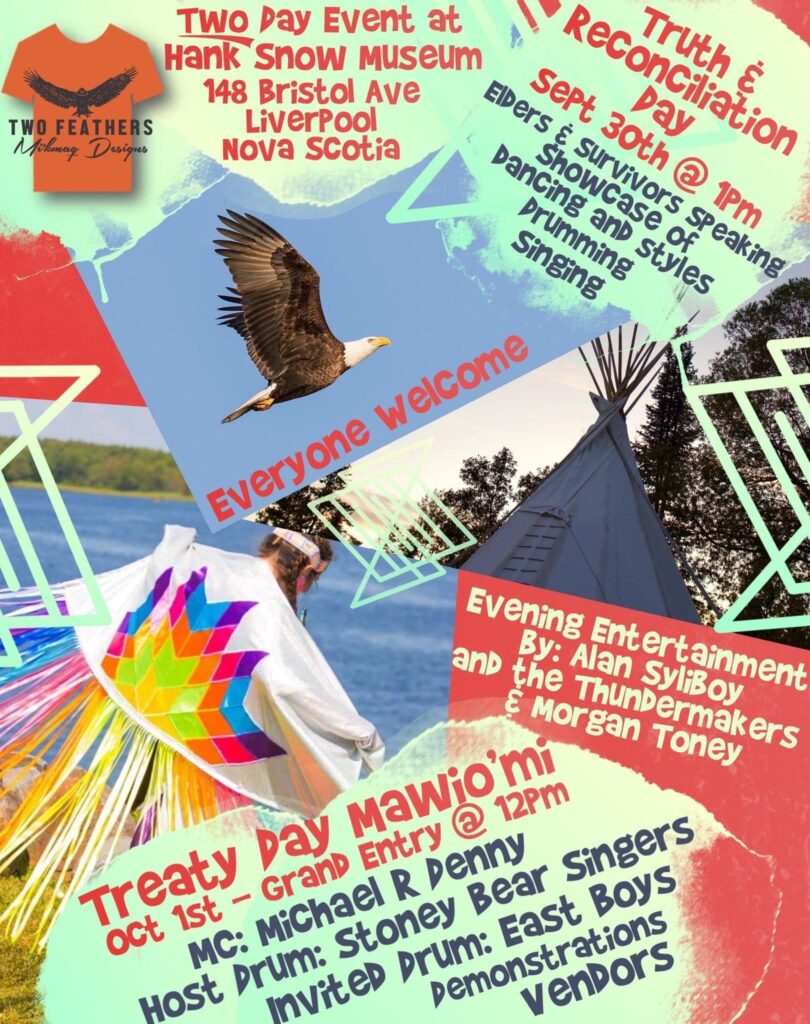
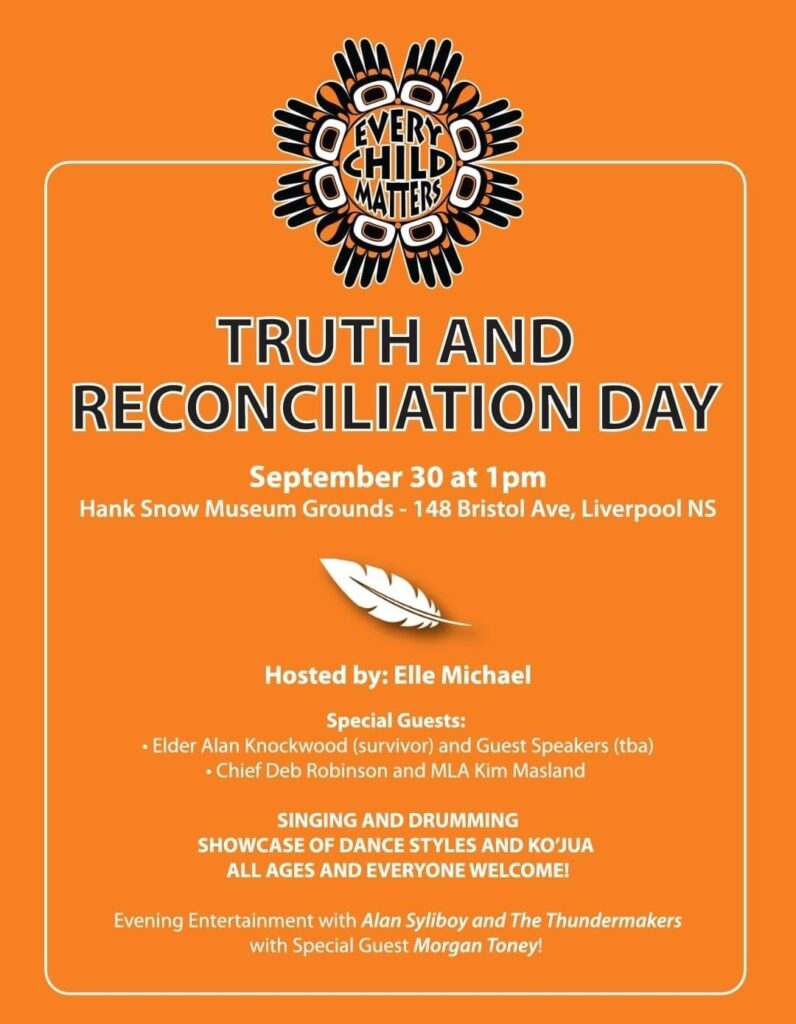
National Indigenous Peoples Day 2022
June 21st is National Indigenous Peoples Day across Canada. This year, we are grateful to the Rev. Janaki Bandara who has prepared a sermon for use on Sunday, June 19th. Our deep thanks to Pastor Janaki! Additionally, Deacon Scott Knarr and Rev. Elaine Boone have written prayers for inclusion in worship that day as well. Thank you Deacon Scott and Pastor Elaine! Click here to access resources.
Indigenous Health Determinants
We are pleased to share a recording of our webinar exploring the effects of COVID-19 on the health determinants of Indigenous, Metis and Inuit people. Keynote by Dr. Angela Mashford-Pringle, assistant professor and associate director at the Waakebiness-Bryce Institute for Indigenous Health, Dalla Lana School of Public Health at the University of Toronto.
Also featuring a conversation between Richelle Miller, of Six Nations of the Grand River, and Christine Ramseyer, parish nurse at Mount Zion Evangelical Lutheran Church in Waterloo.
This event was co-sponsored by the Eastern Synod and Martin Luther University College.
CRJ Resource List
1492 Land Back Lane
Many of us are aware of the occupation by Haudenosaunee land defenders at 1492 Land Back Lane at Caledonia, Ontario. People living on or near the Haldimand Tract are encouraged to become informed about the history and the issues. These are complex, but researching this story with care can help us to understand the reasons for the protest and their implications for relationship.
There is a great deal of information online, but a useful beginning is a learning resource with links to some source documents and writings from a variety of views and perspectives, put together in the Fall of 2020 by Steve Heinrichs, Indigenous-Settler Relations director for Mennonite Church Canada. It can be found here.
Letter from the Bishops – Lobster Fishing Crisis in Nova Scotia
International Day of the World’s Indigenous Peoples
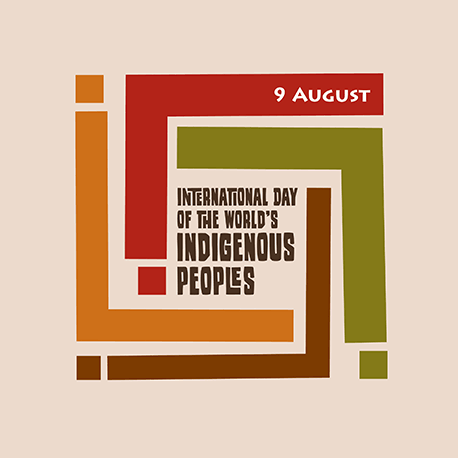
Dear Friends,
August 9, 2020 is the International Day of the World’s Indigenous Peoples, as declared by the United Nations. It also happens to fall on a Sunday this year. For those of you looking for resources to help augment your worship or your online presence in other ways, please see the links below.
https://easternsynod.org/wp-content/uploads/ResourcesNationalIndigenousPeoplesDay2020-1.pdf
https://www.un.org/en/observances/indigenous-day
Peace and blessings to you as we continue to learn and walk the journey of understanding and reconciliation.
Christie
(Further resources can be accessed through the Racial Justice Advisory Committee)
National Indigenous Peoples Day 2020
Dear People of God,
We are all created in the image of God.
When we can recognize our equal humanity and worth our attitudes and behaviours are motivated by compassion and the common good. The disheartening aspect of recent reports of police violence against Indigenous Peoples is that it is neither unusual nor uncommon. We are quick to respond with disgust and anger when we see instances of racial violence and injustices, and yet as the Toronto Star’s editorial board writes, “Let’s save some outrage for treatment of Indigenous people.”¹
In response to the racial violence in Minneapolis, Ontario Regional Chief RoseAnne Archibald writes,
“Indigenous Elders have said, this coronavirus has come for a reason, it has come to teach us something. One thing is obvious; this pandemic has reminded us of our shared humanity. As the world experienced lockdowns, the majority of us stayed home and expressed a collective concern for our fellow humans’ health and well-being. Perhaps for the first time in our modern human experience, we understood we are truly in this together. As such, it was especially shattering to watch a fellow human killed when we were all working toward preserving health and saving lives. George Floyd became ‘everyman,’ who was experiencing real anguish, and when he cried out for his mother, we all understood.”²Read more →
